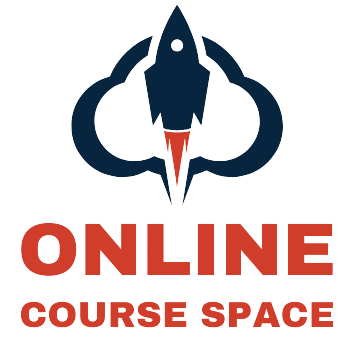Social justice and human rights are two interconnected concepts that seek to promote equality, fairness, and respect for the dignity of all individuals and groups within society.
Social justice refers to the principles of fairness and equity in the distribution of wealth, opportunities, and privileges within society. It seeks to ensure that all individuals, regardless of their background, have equal access to the resources they need to live fulfilling and meaningful lives. Social justice involves identifying and addressing the root causes of inequalities and injustices in society, such as discrimination, poverty, and systemic oppression.
Human rights, on the other hand, are the fundamental rights and freedoms that every individual is entitled to by virtue of being human. These include civil and political rights, such as the right to free speech and the right to vote, as well as economic, social, and cultural rights, such as the right to education and healthcare. Human rights are enshrined in international treaties and conventions, and they are protected by national and international laws and institutions.
The promotion of social justice and human rights is essential for building a fair and just society. It involves advocating for policies and practices that address social and economic inequalities, combat discrimination and prejudice, and protect the rights and dignity of all individuals. This can include initiatives such as affirmative action, anti-discrimination laws, and policies that promote equal access to education, healthcare, and other essential services.
Overall, social justice and human rights are critical concepts for promoting a more equitable and just society, and they require ongoing advocacy, activism, and commitment from individuals and communities around the world.
1. Indigenous Canada by University of Alberta (Coursera)

Indigenous Canada is a Massive Open Online Course (MOOC) offered by the University of Alberta on the Coursera platform. The course provides an introduction to the history, culture, and contemporary issues facing Indigenous peoples in Canada.
The course consists of 12 modules that cover a range of topics, including the history of Indigenous peoples in Canada, the impact of colonization and residential schools, Indigenous governance and self-determination, Indigenous knowledge and worldviews, and contemporary issues facing Indigenous communities.
Each module includes a video lecture presented by a different Indigenous scholar or community member, as well as readings, discussion forums, and quizzes. The course is self-paced, and learners can complete the modules at their own pace.
The course aims to increase awareness and understanding of Indigenous history, culture, and contemporary issues, and to encourage reconciliation and meaningful engagement between Indigenous and non-Indigenous peoples in Canada. It is suitable for anyone interested in learning more about Indigenous peoples and their experiences in Canada, including educators, policymakers, and community leaders.
Upon completion of the course, learners receive a certificate of completion, which can be used to showcase their knowledge and understanding of Indigenous issues.
Key Highlights
- Understand the key issues facing Indigenous peoples today from a historical and critical perspective
- Learn about Indigenous concepts of gender, and the traditional roles and responsibilities
- Learn about contemporary Indigenous life, art and its expressions
- Explore the teaching and learning in Indigenous communities
- Discuss the concepts of self-government, self-determination, and Indigenous resurgence
- Suitable for anyone with interest in acquiring a basic familiarity with Indigenous/non-Indigenous relationships
Duration : Approx. 21 hours
Rating : 4.8
Sign up here
2. Inclusive Leadership: The Power of Workplace Diversity by University of Colorado (Coursera)

Inclusive Leadership: The Power of Workplace Diversity is an online course offered by the University of Colorado on the Coursera platform. The course is designed to help individuals become more effective leaders in diverse work environments.
The course consists of four modules that cover a range of topics, including the business case for diversity and inclusion, unconscious bias, communication in diverse teams, and strategies for creating an inclusive workplace culture.
Each module includes video lectures, readings, and quizzes, as well as interactive activities and case studies. Learners are encouraged to reflect on their own experiences and apply the concepts and strategies presented in the course to their own leadership practices.
The course is suitable for anyone interested in developing their leadership skills in a diverse workplace, including managers, team leaders, and HR professionals. It is also relevant for individuals who want to learn more about diversity and inclusion and how it can benefit their organization.
Upon completion of the course, learners receive a certificate of completion, which can be used to demonstrate their knowledge and skills in inclusive leadership. The course aims to empower individuals to create more inclusive and equitable workplaces, where all employees can thrive and contribute to the success of the organization.
Key Highlights
- Equip and empower to respond successfully to changes in the global workplace
- Deepen your understanding of the benefits of diversity and how to reap those benefits
- Learn the signature traits of inclusive leaders
- Covers traditional and timely topics from listening, feedback, and collaboration, to privilege, implicit bias, microaggressions, and micro-affirmations
- Strengthen self-awareness and develop your communication skills
Duration : Approx. 21 hours
Rating : 4.9
Sign up here
3. International Women’s Health and Human Rights by Stanford University (Coursera)

International Women’s Health and Human Rights is an online course offered by Stanford University on the Coursera platform. The course provides an introduction to the complex issues surrounding women’s health and human rights around the world.
The course covers a range of topics, including the social, economic, and political factors that impact women’s health, reproductive health, gender-based violence, and the role of international law and policy in promoting women’s rights.
Each module includes video lectures, readings, and quizzes, as well as interactive activities and case studies. Learners are encouraged to reflect on their own experiences and apply the concepts and strategies presented in the course to their own work in the field of women’s health and human rights.
The course is suitable for anyone interested in learning more about women’s health and human rights, including healthcare providers, policymakers, researchers, and activists. It is particularly relevant for individuals who work in global health and development, or who are interested in pursuing a career in this field.
Upon completion of the course, learners receive a certificate of completion, which can be used to demonstrate their knowledge and skills in the area of international women’s health and human rights. The course aims to empower individuals to work towards a more just and equitable world, where all women have access to the resources and services they need to live healthy and fulfilling lives.
Key Highlights
- Learn about women’s health and human rights issues from infancy through old age
- Access to global forums and numerous channels to engage with the class and interact with other students
- Opportunity to participate in interactive discussions
- Course is available for free. Learners can get a verified certificate at a small fee
- Self-paced course that can be completed in your own time
Duration : Approx. 58 hours
Rating : 4.9
Sign up here
4. Global Diplomacy – Diplomacy in the Modern World by University of London (Coursera)

Global Diplomacy – Diplomacy in the Modern World is an online course offered by the University of London on the Coursera platform. The course provides an introduction to the theory and practice of diplomacy in the contemporary global context.
The course covers a range of topics, including the history of diplomacy, the role of diplomats and diplomatic missions, international law and treaties, multilateral diplomacy and global governance, and the challenges and opportunities facing diplomacy in the 21st century.
Each module includes video lectures, readings, and quizzes, as well as interactive activities and case studies. Learners are encouraged to engage in online discussions with fellow participants and to apply the concepts and strategies presented in the course to real-world scenarios.
The course is suitable for anyone interested in learning more about diplomacy and global affairs, including policymakers, diplomats, journalists, and students of international relations. It is particularly relevant for individuals who work in the fields of international development, human rights, conflict resolution, and global governance.
Upon completion of the course, learners receive a certificate of completion, which can be used to demonstrate their knowledge and skills in the area of global diplomacy. The course aims to equip individuals with the tools and knowledge they need to navigate the complex landscape of international relations and diplomacy, and to contribute to a more peaceful and just world.
Key Highlights
- Gain a critical understanding of the nature and development of world diplomacy
- Explore a range of diplomatic issues that are relevant in today’s world
- Engage with practicing diplomats and their institutions
- Learn about diplomacy as a profession and the qualities of a good diplomat
- Engagement with peers through exercises and assessments for feedback and evaluation
Duration : Approx. 13 hours
Rating : 4.7
Sign up here
5. Social Norms, Social Change I by University of Pennsylvania (Coursera)

Social Norms, Social Change I is an online course offered by the University of Pennsylvania on the Coursera platform. The course provides an introduction to social norms and how they influence human behavior, with a particular focus on the role of social norms in promoting social change.
The course covers a range of topics, including the definition and types of social norms, the social psychology of conformity, the use of social norms in behavior change interventions, and the ethical implications of social norms.
Each module includes video lectures, readings, and quizzes, as well as interactive activities and case studies. Learners are encouraged to reflect on their own experiences and apply the concepts and strategies presented in the course to their own work in the field of social change.
The course is suitable for anyone interested in learning more about social norms and behavior change, including policymakers, activists, social entrepreneurs, and researchers. It is particularly relevant for individuals who work in the fields of public health, education, gender equality, and environmental sustainability.
Upon completion of the course, learners receive a certificate of completion, which can be used to demonstrate their knowledge and skills in the area of social norms and social change. The course aims to empower individuals to use social norms as a tool for promoting positive social change, and to create more just and equitable societies.
Key Highlights
- Learn why social norms exist, what they depend on and their dynamics
- Understand how to diagnose social norms, and how to distinguish them from other social constructs, like customs or conventions
- Understand what it means for a collective practice to be a social norm
- Discuss examples of social norms that sustain behaviors like child marriage, gender violence and sanitation practices
- Interviews with international UNICEF practitioners with a deep understanding of their respective fields
Duration : Approx. 13 hours
Rating : 4.6
Sign up here
6. Feminism and Social Justice by UC Santa Cruz (Coursera)

Feminism and Social Justice is an online course offered by the University of California, Santa Cruz, on the Coursera platform. The course provides an introduction to feminist theory and practice, with a particular focus on the intersection of gender, race, class, and sexuality.
The course covers a range of topics, including the history of the feminist movement, feminist perspectives on power and oppression, intersectionality, gender and sexuality, reproductive justice, and the role of men in the feminist movement.
Each module includes video lectures, readings, and quizzes, as well as interactive activities and case studies. Learners are encouraged to engage in online discussions with fellow participants and to apply the concepts and strategies presented in the course to real-world scenarios.
The course is suitable for anyone interested in learning more about feminism and social justice, including activists, researchers, policymakers, and students. It is particularly relevant for individuals who work in the fields of gender studies, sociology, social work, and public health.
Upon completion of the course, learners receive a certificate of completion, which can be used to demonstrate their knowledge and skills in the area of feminism and social justice. The course aims to empower individuals to become more effective advocates for gender equality and social justice, and to contribute to a more just and equitable world.
Key Highlights
- Gain new perspective on how feminism can be a driver of social change
- Learn about the causes, conditions, and outcomes of the strike by Mexican American zinc miners in New Mexico in 1951
- Learn about the Free Angela Davis movement (1969-1972) and how it became a huge international social justice effort
- Learn about the causes and outcomes of the #metoo movement, and its contribution to feminism and social justice
Duration : Approx. 8 hours
Rating : 4.8
Sign up here
7. Gender and Sexuality: Diversity and Inclusion in the Workplace by University of Pittsburgh (Coursera)

Gender and Sexuality: Diversity and Inclusion in the Workplace is an online course offered by the University of Pittsburgh on the Coursera platform. The course provides an introduction to gender and sexuality diversity in the workplace, with a focus on creating an inclusive and supportive work environment for all employees.
The course covers a range of topics, including the social construction of gender and sexuality, the intersectionality of identity, the impact of gender and sexuality on workplace dynamics, and strategies for creating a more inclusive workplace culture.
Each module includes video lectures, readings, and quizzes, as well as interactive activities and case studies. Learners are encouraged to reflect on their own experiences and apply the concepts and strategies presented in the course to their own workplace settings.
The course is suitable for anyone interested in learning more about gender and sexuality diversity in the workplace, including managers, human resources professionals, diversity and inclusion specialists, and employees at all levels. It is particularly relevant for individuals who work in industries where gender and sexuality issues are salient, such as healthcare, education, and technology.
Upon completion of the course, learners receive a certificate of completion, which can be used to demonstrate their knowledge and skills in the area of gender and sexuality diversity in the workplace. The course aims to empower individuals to become more effective advocates for diversity and inclusion in the workplace, and to create a more equitable and supportive work environment for all employees.
Key Highlights
- Learn key concepts to help interpret and understand the world we share
- Discuss a range of critical issues that are directly related to gender and sexuality
- Discuss common examples of gender and sex stereotyping and discrimination
- Explore the issue of job insecurity for LGB folks
- Learn about the advent of ENDA and controversies around ENDA
Duration : Approx. 16 hours
Rating : 4.7
Sign up here
8. Aboriginal Worldviews and Education by University of Toronto (Coursera)

Aboriginal Worldviews and Education is an online course offered by the University of Toronto on the Coursera platform. The course provides an introduction to Indigenous worldviews and their implications for education, with a focus on promoting culturally responsive and respectful teaching practices.
The course covers a range of topics, including the history of Indigenous education in Canada, the diversity of Indigenous worldviews and cultures, the impact of colonization on Indigenous education, and strategies for incorporating Indigenous perspectives into curriculum and pedagogy.
Each module includes video lectures, readings, and quizzes, as well as interactive activities and case studies. Learners are encouraged to engage in online discussions with fellow participants and to apply the concepts and strategies presented in the course to their own teaching practices.
The course is suitable for anyone interested in learning more about Indigenous worldviews and education, including educators, policymakers, researchers, and students. It is particularly relevant for individuals who work in the field of education and who are interested in promoting equity and social justice in their teaching practice.
Upon completion of the course, learners receive a certificate of completion, which can be used to demonstrate their knowledge and skills in the area of Indigenous worldviews and education. The course aims to empower individuals to become more effective advocates for Indigenous education and to create more inclusive and culturally responsive learning environments for Indigenous and non-Indigenous students alike.
Key Highlights
- Explore cultural, spiritual and philosophical themes in aboriginal worldviews
- Learn the reasons why aboriginal worldviews matter
- Learn about the historical, social, and political issues in aboriginal education
- Learn how aboriginal worldviews can inform professional programs and practices
- Learners can set and maintain flexible timelines with self-paced learning
Duration : Approx. 14 hours
Rating : 4.8
Sign up here
9. Impact Measurement & Management for the SDGs by Duke University (Coursera)

Impact Measurement & Management for the SDGs is an online course offered by Duke University on the Coursera platform. The course provides an introduction to impact measurement and management, with a particular focus on the United Nations Sustainable Development Goals (SDGs).
The course covers a range of topics, including the importance of impact measurement and management, the different approaches to measuring impact, the challenges and opportunities of impact measurement, and strategies for integrating impact measurement into organizational decision-making processes.
Each module includes video lectures, readings, and quizzes, as well as interactive activities and case studies. Learners are encouraged to apply the concepts and strategies presented in the course to real-world scenarios and to reflect on their own experiences and perspectives.
The course is suitable for anyone interested in learning more about impact measurement and management, including practitioners, policymakers, researchers, and students. It is particularly relevant for individuals who work in the fields of social entrepreneurship, impact investing, international development, and corporate social responsibility.
Upon completion of the course, learners receive a certificate of completion, which can be used to demonstrate their knowledge and skills in the area of impact measurement and management for the SDGs. The course aims to empower individuals and organizations to become more effective agents of change and to contribute to a more sustainable and equitable world.
Key Highlights
- Master the core concepts and practices in impact management for the SDGs
- Improve decision-making for impact on the SDGs
- Help organizations align with responsible business principles and best practices in impact management
- Understand the material issues most relevant to your stakeholders and define your target SDG outcomes
- Learn how to put into place the resources, tools, and processes that will allow you to measure your SDG impact
Duration : Approx. 9 hours
Rating : 4.9
Sign up here
10. Diversity and inclusion in the workplace by ESSEC Business School (Coursera)

Diversity and Inclusion in the Workplace is an online course offered by ESSEC Business School on the Coursera platform. The course provides an introduction to diversity and inclusion, with a focus on understanding the challenges and opportunities of building inclusive workplace cultures.
The course covers a range of topics, including the business case for diversity and inclusion, the role of unconscious bias in decision-making, strategies for building inclusive workplace cultures, and the importance of allyship and advocacy in promoting diversity and inclusion.
Each module includes video lectures, readings, and quizzes, as well as interactive activities and case studies. Learners are encouraged to engage in online discussions with fellow participants and to apply the concepts and strategies presented in the course to their own workplace experiences.
The course is suitable for anyone interested in learning more about diversity and inclusion in the workplace, including managers, HR professionals, policymakers, and employees. It is particularly relevant for individuals who work in organizations that are committed to building more diverse and inclusive workplace cultures.
Upon completion of the course, learners receive a certificate of completion, which can be used to demonstrate their knowledge and skills in the area of diversity and inclusion in the workplace. The course aims to empower individuals and organizations to become more effective agents of change and to create more inclusive and equitable workplace cultures.
Key Highlights
- Get introduced to key diversity-related concepts and issues
- Understand how cognitive processes such as social categorization impact what we see and how we react to our social environment
- Grasp the challenges of implementing inclusion in the workplace
- Learn how diversity can facilitate improved performance and innovation
- Identify diversity and inclusion best practices, and become more aware of the different inclusion initiatives in your professional environment
Duration : Approx. 9 hours
Rating : 4.7
Sign up here



![Top 10 Art & Drawing Classes, Lessons & Courses Online [2023]](https://onlinecoursespace.com/wp-content/uploads/2023/03/onlinecoursespace_art-drawing-440x264.png)

